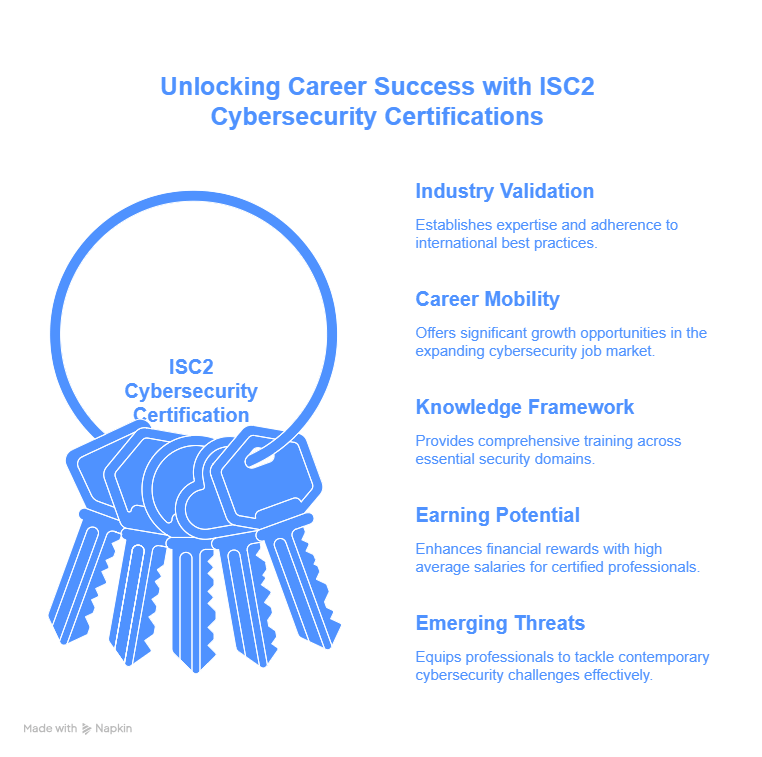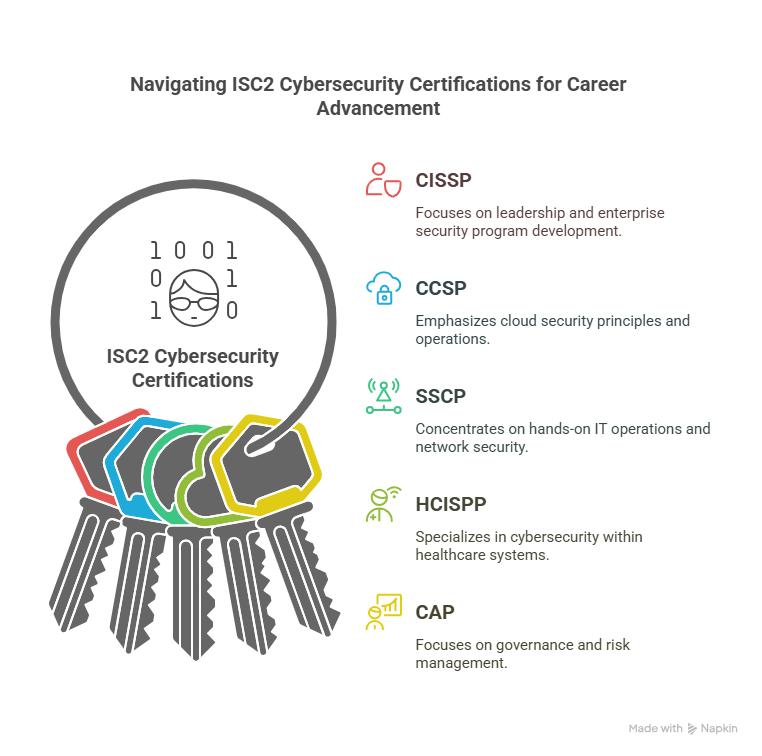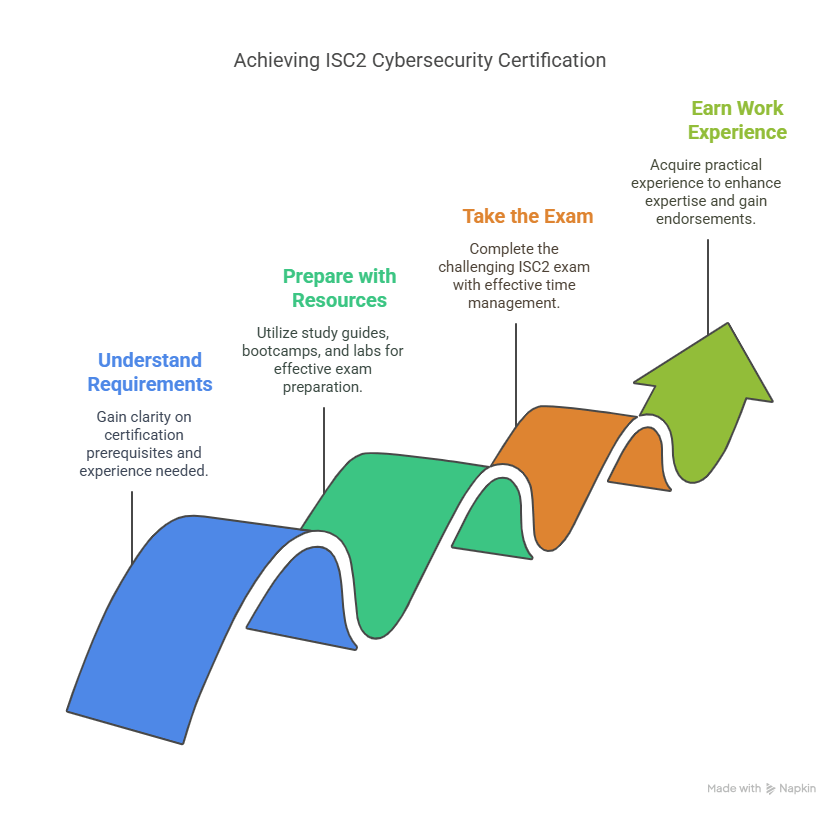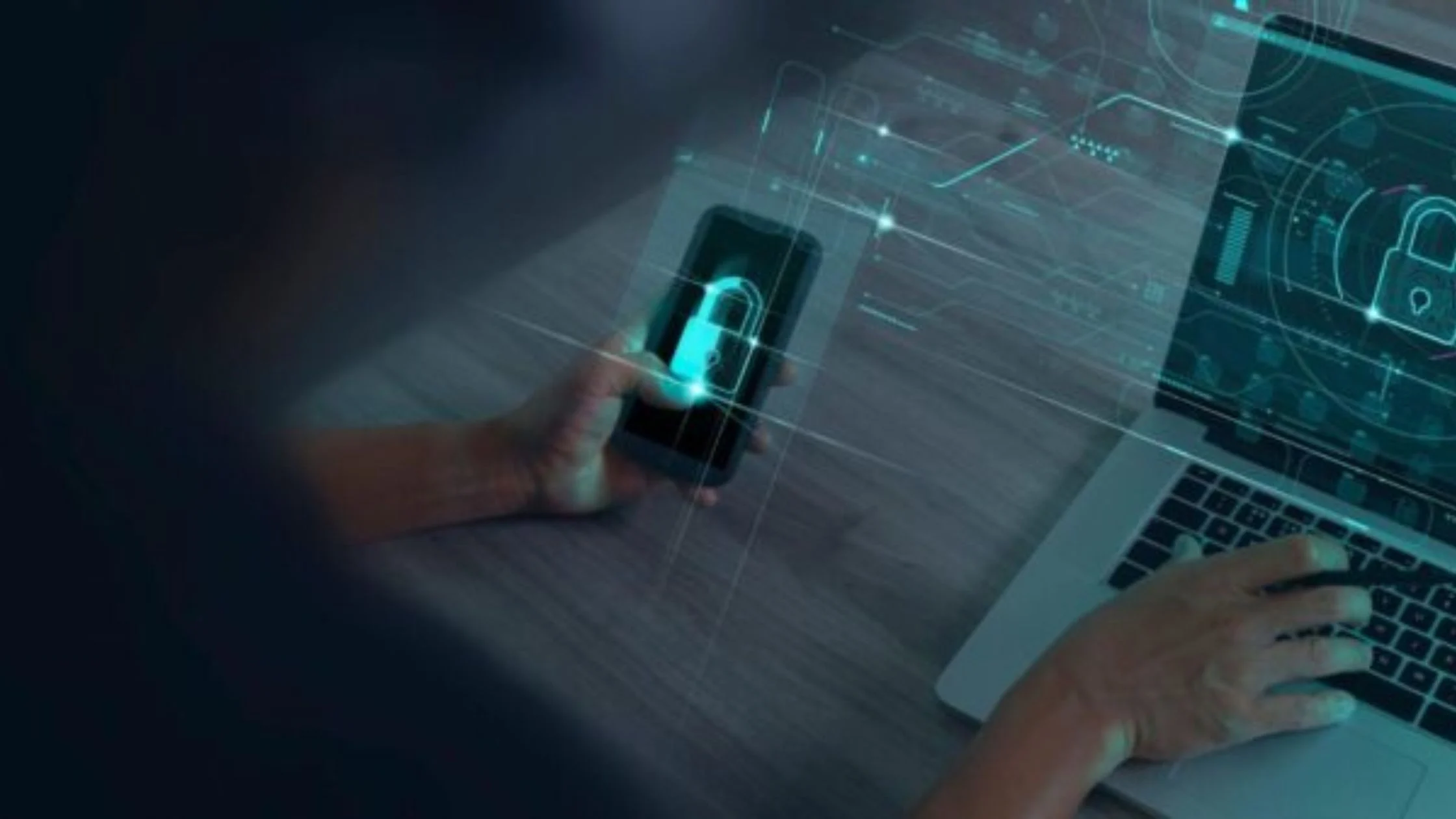Table of Contents
The cybersecurity domain is at the forefront of today’s digital revolution, safeguarding the infrastructure that powers our world. For individuals looking to enter or advance in this dynamic field, a clear and structured pathway is crucial. That’s where the Fastest Cybersecurity Certification, the ISC2 Cybersecurity Certification, comes in—a globally recognized credential that validates your expertise in implementing and managing security measures to protect critical data and systems. Whether you’re aiming to become a Certified Information Systems Security Professional (CISSP) or specializing in domains like cloud security (CCSP) or healthcare security (HCISPP), ISC2 provides a robust framework tailored to meet modern cybersecurity needs.
ISC2 certifications are highly valued by top organizations and hiring managers. They not only validate your technical skills but also demonstrate your ability to protect environments against evolving cyber threats. With ISC2 training programs focusing on ethical standards, these certifications ensure you’re prepared to build trust in the digital ecosystem.
What is ISC2 Cybersecurity Certification?
The ISC2 Cybersecurity Certification is designed to validate a professional’s ability to safeguard digital infrastructures and data. By earning an ISC2 certification, individuals gain the credentials necessary to demonstrate their expertise in managing cybersecurity risks, deploying defense mechanisms, and ensuring organizational compliance with security regulations. ISC2’s certifications, including the well-known CISSP, are respected globally and offer a framework that prepares professionals to handle both the technical and strategic aspects of cybersecurity.
Why ISC2 Cybersecurity Certification is Essential
ISC2 certifications are critical for professionals looking to stand out in a highly competitive field. Here’s why they are essential:

1. Industry Validation
An ISC2 credential establishes you as a cybersecurity expert who understands international best practices. These certifications are an industry standard for leadership roles like Security Manager, Cloud Security Engineer, and Security Architect.
2. Career Mobility
With cybersecurity jobs projected to grow by 35% over the next five years, ISC2-certified professionals have a significant competitive advantage. Statistically, certified professionals can see a 25-40% salary increase compared to their uncertified peers.
3. Comprehensive Knowledge Framework
ISC2 provides training across essential security domains, including Risk Management, Identity & Access Control, Cryptography, and more. This wide-ranging knowledge helps professionals address even the most complex cybersecurity challenges in industries like healthcare, finance, and government.
4. Earning Potential
Acquiring an ISC2 Cybersecurity Certification dramatically increases earning potential. For example, CISSP holders often earn an average annual salary exceeding $130,000, demonstrating how highly valued ISC2-certified professionals are in the cybersecurity industry.
5. Keeping Up with Emerging Threats
ISC2’s certification programs don’t just focus on theoretical knowledge—they emphasize real-world applications. Professionals equipped with ISC2 certifications are trained to handle contemporary threats, such as ransomware mitigation and regulatory compliance, ensuring they can adapt to evolving cybersecurity challenges.
For professionals interested in cloud security and multi-cloud management, programs like ACSMI Modules offer enhanced training to complement ISC2 certifications.
Types of ISC2 Cybersecurity Certifications
ISC2 offers various certifications designed to meet the needs of different cybersecurity career paths. Cybersecurity Awareness is also a key focus, ensuring professionals understand the evolving threat landscape. Some of the most popular certifications include:

1. CISSP (Certified Information Systems Security Professional)
-
Focus: Leadership roles, Enterprise Security Program Development
-
Key Skills: Risk assessment, security architecture, and operational management
2. CCSP (Certified Cloud Security Professional)
-
Focus: Cloud-focused security principles and operations
-
Key Skills: Cloud architecture, data security frameworks, and compliance
3. SSCP (Systems Security Certified Practitioner)
-
Focus: Hands-on IT operation-level work
-
Key Skills: Network security, threat analysis, and cryptography
4. HCISPP (HealthCare Information Security and Privacy Practitioner)
-
Focus: Cybersecurity in healthcare systems
-
Key Skills: Regulatory frameworks like HIPAA compliance, secure healthcare data management
5. CAP (Certified Authorization Professional)
-
Focus: Governance and risk management
-
Key Skills: System-level risk assessments and authorization lifecycle management
These certifications provide rigorous learning paths that allow professionals to specialize while gaining hands-on experience in today’s dynamic IT environment.
How to Get ISC2 Cybersecurity Certified
Achieving ISC2 certification involves a structured approach. Here’s how to get started:

1. Understand the Requirements
ISC2 certifications typically require prior experience in cybersecurity roles. For example, the CISSP requires at least five years of experience in two or more of its eight domains, such as Risk Management and Critical Infrastructure Protection. However, associate-level roles are available for those building their knowledge base.
2. Prepare with the Right Resources
To succeed in ISC2 exams, preparation is key. Utilize resources such as ISC2’s official study guides, bootcamps, and interactive labs. Professionals also leverage advanced platforms like ACSMI, which offers over 400 modules focusing on key cybersecurity practices like encryption, multi-cloud environments, and compliance.
3. Take the Exam
ISC2 certifications consist of challenging, scenario-based exams. To prepare, practice time management and use practice tests. For certifications like CISSP, expect a combination of multiple-choice and advanced adaptive questions, which focus on solving real-world cybersecurity problems.
4. Earn Work Experience
After obtaining certification, pursue project-based opportunities to gain practical experience and unlock additional ISC2 endorsements. Hands-on skills across various industries will further validate your expertise.
Informative Table – ACSMI’s Supporting Modules for ISC2 Certification
|
Certification |
Focus |
Key Skills |
ACSMI Supporting Modules |
|
CISSP |
Enterprise Security Program |
Risk Management, Security Architecture |
Advanced Risk Management, Policy Development |
|
CCSP |
Cloud Security |
Cloud Architecture, Compliance |
Cloud Security, Multi-Cloud Infrastructure |
|
CISM |
Governance & Risk Management |
Risk Assessment, Compliance |
Strategic Management, Incident Handling |
|
ACSMI Modules |
Comprehensive Cybersecurity |
AI Threat Detection, Zero Trust Architecture |
Cloud Security, AI-Driven Threat Response |
Final Thoughts
Obtaining an ISC2 Cybersecurity Certification is a defining achievement that opens doors to a world of opportunities in one of the most crucial industries of our time. These certifications validate your expertise in safeguarding digital assets, ensuring compliance, and mitigating risks, making you an invaluable asset in a rapidly evolving cybersecurity landscape. Whether you’re targeting leadership roles or specializing in areas like cloud security or healthcare security, ISC2 offers a comprehensive framework to elevate your skills and career prospects.
Beyond the credibility and earning potential that comes with an ISC2 certification, mastery in critical domains like risk management, cryptography, and threat detection ensures you’re well-prepared to tackle today’s and tomorrow’s cyber challenges. ISC2 certifications aren’t just about passing exams—they prepare you to apply real-world solutions that matter. However, the digital world is constantly changing, and staying ahead requires a commitment to continuous learning, adaptability, and leveraging advanced tools.
Resources like the 400+ modules offered by ACSMI further enhance your preparation, complementing ISC2’s certification paths and keeping your skills fresh in this dynamic industry.
FAQ Section
1. Why should I choose ISC2 Cybersecurity Certification over others?
ISC2 certifications are globally recognized and respected for their high standards. Unlike other certifications, ISC2 programs focus on both technical expertise and ethical leadership—critical for excelling in leadership roles.
2. What’s the difference between CISSP and CCSP by ISC2?
CISSP is a broad certification focused on enterprise security, while CCSP specializes in cloud security. If you’re interested in cloud security, CCSP is ideal; for enterprise roles, CISSP offers broader applicability.
3. Do I need prior certifications for ISC2?
No, beginners can take entry-level certifications like Certified in Cybersecurity (CC) offered by ISC2. However, advanced certifications like CISSP require foundational certifications and prior experience.
4. How long does it take to prepare for the ISC2 certifications?
Preparation time varies depending on your experience level. CISSP typically requires 3–6 months of dedicated preparation and practice.
5. Are ISC2 certifications recognized globally?
Yes, ISC2 certifications, such as CISSP, are international standards recognized in over 160 countries and valued by top-tier employers worldwide.

Leave a Reply